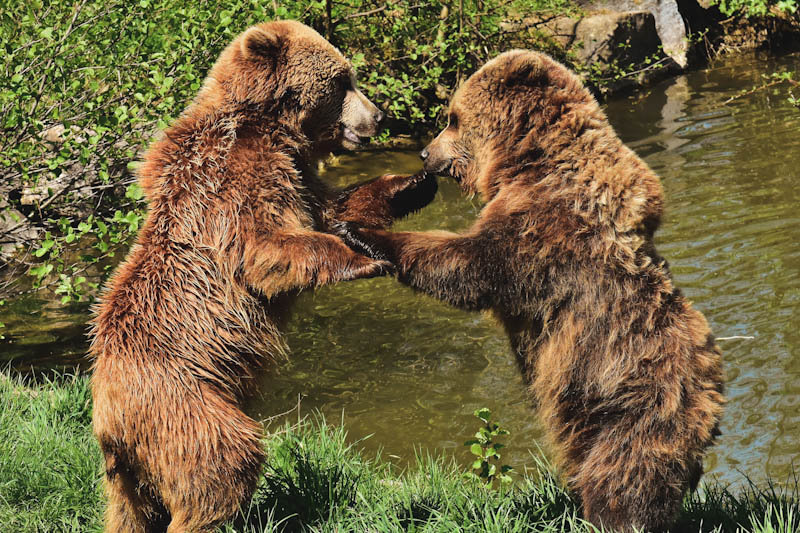Peer Support: How To Give as Good as You Get
No one helps you navigate recovery quite like your friends who've been through addiction themselves. Here's how you can pay it forward

People decide to start recovery for a hundred reasons, and “to make friends” is not usually a leading one. So it often comes as a surprise how much, and how quickly, making friends does become a key part of the recovery process. In treatment, in group therapy and especially in support group meetings, people are always swapping phone numbers, offering mentorship and organizing social outings.
If you’ve already experienced this, you know it isn’t because folks in recovery are outrageously outgoing or extroverted, nor is recovery a 24/7 funfest. It’s because addiction is a powerful enemy, and sometimes you get by with a little help from your friends.
Recognizing this, many 12-step programs have a statement that goes something like this: “Our primary purpose is to stay sober and help other people recover from the disease of addiction.” Some people do get sober on their own, but extensive evidence shows that recovery is much more likely to be successful when you enlist the help of others. Finding peer support is a difference-maker.
When our peers — others who have faced addiction — take the time to talk to us, we tend to hear what they are saying differently than when we read it in a book or hear it from an authority figure.
So: Say you’ve found a measure of recovery and have the gift of sobriety. How can you pass that gift along to others? How do you provide peer support? What do you have to do or know to help someone else? And how can you do this effectively without endangering your sobriety?
Someone, most likely, reached out to you early on. Here’s how you can pay it forward and help someone else who needs it.
All It Takes: A Willingness to Connect
The pivotal moment in getting sober is becoming willing to take the first step to get help. No recovery can take place until you decide you want it. The same goes for becoming willing to help others.
There are a lot of questions you may have when you’re considering becoming a supportive peer to another person who’s struggling with addiction. First off, where do I find someone who needs help? I’m not a professional, so how can I even help? What if I mess it up? Could I somehow imperil my own sobriety?
These are all valid questions — and they will be answered in time — but try this one first: With all the help given to me, how can I not try to help others?
There are no requirements for becoming a supportive peer to someone in recovery or dealing with addiction. You need no training or special knowledge, nor will you be obliged to keep up a peer relationship that’s not a good fit. All you have to do is be willing to reach out your hand to someone struggling or seeking guidance, and you may be amazed at how fulfilling it can be.
Give Suggestions, Not Directions
You’ve extended that hand and a coffee date is set. Great! But what if you give the wrong advice? Think about it this way: “I don’t give advice. I only give suggestions.” You are peers, after all: equals. If any of us had all the answers in life, well … we probably wouldn’t be in recovery.
There are professionals and guidelines that do instruct a person trying to get sober in exactly how to proceed. Think doctors and recovery pamphlets. That’s obviously fine: That is their job and purpose. Your job is to be there to give suggestions based on what helped you along your recovery journey. Sometimes, your job is simply to be there, period.
Your addiction story is your greatest asset in helping someone else recover. You don’t need years’ worth of degrees or even years’ worth of recovery to be someone’s peer. You just need to be honest with your own story of recovery, and there is a strong chance that the person you’re trying to help will relate to some of it.
Remember, if it comes to this, that no one can make someone else be sober. As long as you are upfront and honest about what you went through and stay committed to being available to your less seasoned friend, you have already succeeded. You are keeping your commitment to helping others recover.
Peers Till the End? Peer Support and Long-Term Recovery
Not everyone recovers from addiction. That is why it is crucial to remember how blessed you are to be in your position. (Though that doesn’t diminish your hard work to get sober!)
However, if you are committed to offering peer support as part of your recovery, you should prepare to be frustrated at times: Not everyone you try to help is going to recover. That’s not your fault. It’s the nature of addiction.
But even helping one person stay sober makes an awfully big difference to that one person. You are helping them beat the odds of addiction. And you are not just helping them, you’re also helping everyone around them recover. Addiction is a family disease. One person begins to heal, and then others can as well.
It’s also extremely common to recover slowly, in fits and starts. Your struggling peer has a solid chance of recovery, eventually, if they want it. You helped plant that seed.
If you’re on the fence about putting your energies into peer support, there’s also this: By keeping someone else sober, you are keeping yourself sober as well. Addiction is a self-centered disease. By getting out of your own head for a while and focusing on someone else, you can find some relief or diversion while doing something fulfilling, which is a solid exercise for promoting your own long-term recovery.
Most likely, addiction once robbed you of purpose and direction in your life. Millions of other people are going through that, too. But now that you have achieved some recovery, you can work toward finding that purpose and then some. Just maybe, it’s that “primary purpose” of potentially saving another person’s life.
More Help & Information
Does the 'Pink Cloud' of New Sobriety Help or Hurt? It's Complicated
The euphoria of early recovery may be fleeting, but long-lasting balance is the goal. Here's how to keep your head up through the process and handle reality with confidence.
Sobriety vs. Recovery: What's the Difference?
Are the concepts themselves up for debate? Do they require certain treatments, or abstinence from everything? It's complicated! And new ways of thinking are changing the conversation.
Now Elite NFL Players, They First Tackled Addiction | News Roundup
All Sober compiles the best of the latest headlines. Here's your addiction and recovery news for the week of Feb. 19, 2024!
Help Them Help You: Explaining Your Mental Health to Your Family
Your mental health can affect — and be affected by — your loved ones. Here's how to discuss it with them so everyone can heal.
Dry January (and Beyond): The Possibilities Are Endless
There's never been a better time to go sober. Whether you're trying it out this month or already living the life, join us for some tips, ideas, inspiration — and maybe even new friends.
Sober Holiday Tips: Meeting 'Share-a-Thons'
Need to get out of the house for a bit and see some friendly sober faces? Recovery support group meeting marathons run 24/7 from Christmas Eve through New Year's Day.
What Happens After an Intervention?
Your loved one agreed to get treatment for addiction during their intervention — or not. Here's what you need to know about what comes next.
We're in This Together: Building a Healthy Sober Support Network
You are the captain of your recovery, but you don't have to do it alone. A sober support network will lift you up in tough times and celebrate your triumphs.











